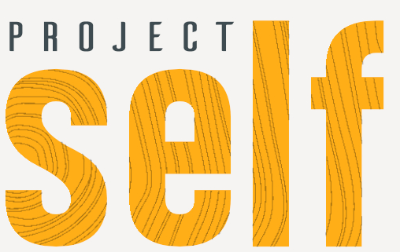Alone and loneliness are one-ness. It is just us.
And the rest of the world. Even though the rest of the world is made up of us; this pain of separation can become more defining of our sense of self than the concept of unity, universality, humanity and the experience of connection. A great paradox of living is being free and seeking to be tethered. By tethering I mean moored, secured, bonded to someone, something; to be with, in or part of other. To fit. To be known.
We seek to be seen by others to see ourselves. We need community, connection and relationship to feel away from the sense of non-existence, non-belonging; to anchor. For who are we, as just us?
When does aloneness become loneliness?
Aloneness is solitary. Choiceful separation, being away from others. It is the freedom of being and from the need to be tethered. It is being without yearning.
We seek company, a partner, create a family, lose ourselves in distraction; we determine on focus and meaning, engage in spiritual and therapeutic process and practice, join community and belief systems. We seek creative immersion, production, expression; turn to nature and animals. We turn outwards. To fill up the being of us into something more. To make sense of aloneness we map out our living through engaging and communing in the world. We seek intimacy, to be met; knowing, revealing to other. Then we know we are real. Then we can feel what is real, for parts of us are no longer hidden. We are activated. Alive in the energy of that moment between.
Loss is so keenly felt because it consistently returns us to the fundamental one-ness of living, to not knowing and not being known; untethered. To the original grief of being alone within our self.
Who am I? is a familiar question. How do I live lonely? is not.
Loneliness is when we are emotionally affected by being alone in a negative way. It is not just about not having company, for that company may not touch what is deep inside us. We all know how lonely we can feel when we are surrounded by people. So loneliness isn’t a state resolved purely by the company of others because it is not defined by the physicality of aloneness.
Loneliness is an internal state of disconnect in self-relationship. It’s a yearning to be met by others and to meet ourselves, yet feeling excluded. Loneliness has a sense of needing or missing something inside which we tend to focus on as being outside of ourselves. It’s an internalised feeling of ‘being outside’; heavy, lost or empty, which leads to a way of thinking about ourselves in the world (the lonely cloud looking down on the crowd of daffodils), which intensifies the feeling of distance. We might feel unseen, misunderstood, not part of things, unlovable in the world, but we might be carrying the sense we are not good enough, don’t belong, don’t deserve to be loved. How can we not feel lonely if we believe such things about ourselves? If we believe the world won’t welcome all the parts of us and we fear judgement and rejection?
When we grow up without our needs being met (emotional neglect) we may have a tendency to feel separate and apart from others as there is an empty space around where we should have received loving attention. When our parents don’t respond to our feelings as a child, we don’t develop in a relationship based on safety, validation and recognition. We learn certain feelings are simply unsafe to hold, and express; there is no home made available for them (Matt Licata). This is the original site of loneliness. Distanced from our caregivers for those feelings we also become distant within ourselves. We disembody and split from our feelings as a survival strategy; to keep the tie with our caregivers. As a result, as an adult we do not welcome all parts of ourselves.
We may self-segregate from others through walling ourselves off, withdrawing from the risk of social situations and intimacy; despite our longing for them. We may fear and have anxiety around others and their potential rejection or dismissal. We can become avoidant or ambivalent (both seeking and pushing away connection) in our relationships. Attachment theory is very clear about the effects of parental relationship on how secure we are as adults in ourselves and any form of relationships. Once we understand what is happening within our experience better, we can feel less lonely, especially if we secretly feel like there is something wrong with us.
Aloneness is linked to depression as we may become withdrawn; not actively participating and engaging in social contact or context. The risk being that when we aren’t relating and connecting with other people, we become introverted, most interested in our own thoughts and feelings and less in what is outside ourselves. Personally I do not view aloneness as an ‘ailment of modern society’. There is a tendency towards loneliness through being alone if it reduces our capacity to connect, but so also is there a tendency to becoming stressed and overwhelmed by being in the company of others all the time. Doing busy.
One of the constant themes raised by clients who are struggling in their lives is that they do not have enough time and space to themselves. This affects their capacity to just be, to be themselves and to be connected with their feelings. Self-nurture is to know our need and how to meet it through knowing what to draw from. Self-nurture is inherent within aloneness; its fullness if you like, rather than its emptiness:
To be with yourself as opposed to being without another.
The balance is to know the difference between aloneness and loneliness. And to know we all live life lonely sometimes. You are not alone there.
